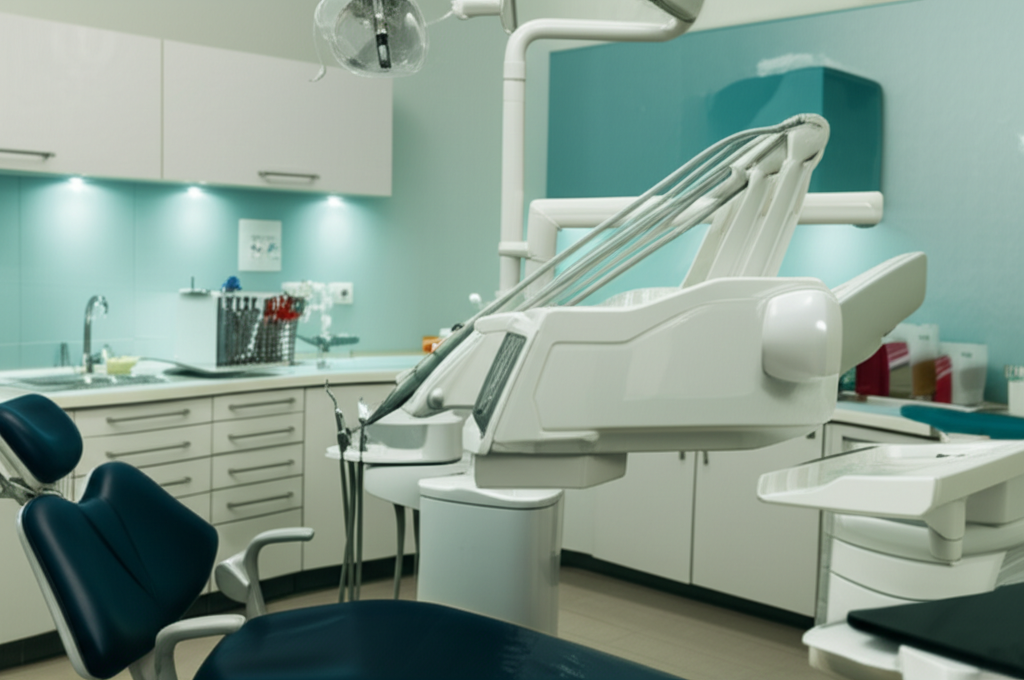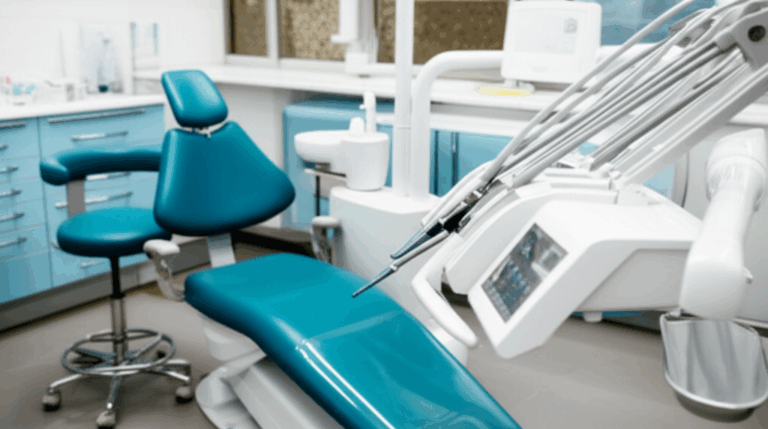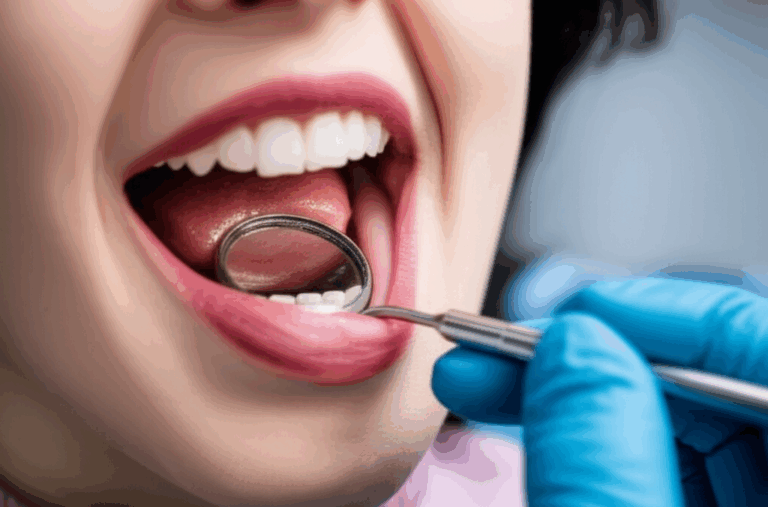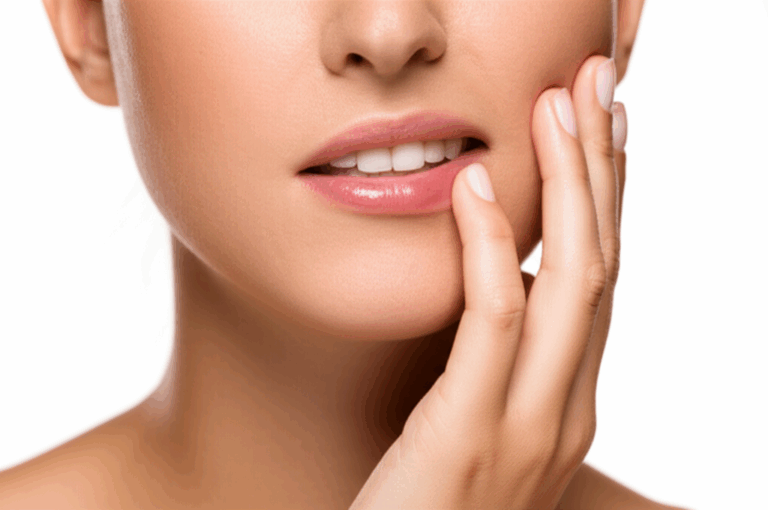
What Age Should Kids Start Going to the Dentist?
The Essential Guide for Parents: Building Healthy Smiles from Baby Teeth and Beyond
Feeling unsure about your child’s first dentist appointment? You’re not alone. Most parents want to do the right thing, but knowing the best age for the first dental visit can be confusing. Maybe you’ve heard, “Wait until they’re three,” or you’re wondering, “Does it even matter if baby teeth get cavities?”
Let’s clear up all those worries. This simple guide explains when—and why—kids should see the dentist, what will happen at that first special visit, and how you can help your child start a life with healthy smiles.
In This Article
- The Official Recommendation: By Their First Birthday
- What Happens at Your Child’s First Dental Visit?
- Why Early Dental Visits Matter: Benefits Beyond Healthy Teeth
- Preparing Your Child (and Yourself) for the First Visit
- Common Concerns and FAQs for Parents
- Establishing a “Dental Home” for Lifelong Oral Health
- Conclusion: Prioritizing Your Child’s Oral Health Journey
The Official Recommendation: By Their First Birthday
Why 12 Months? More Than Just Teeth
If you’re asking, “When should my child see a dentist for the first time?” here’s your answer: BOTH the American Academy of Pediatric Dentistry (AAPD) and the American Dental Association (ADA) say your child should go to the dentist by their first birthday, or within six months after the first tooth comes in—whichever comes first.
That might sound early, but there’s a good reason. Baby teeth (also called primary teeth) can show up as early as 4-6 months old. And just because they’re “baby” teeth doesn’t mean they don’t matter! Cavities are the most common childhood disease—five times more common than asthma. By age five, over half of kids will have tooth decay.
Catching problems early helps stop bigger ones later. The dentist looks for:
- Early childhood cavities: Cavities in baby teeth can get worse fast if not treated.
- Growth problems: Issues with jaw, gums or teeth are better found early.
- Dental home: Setting up a good, regular relationship with a dentist makes visits easier (for both of you).
- Parent help: Teaching families to clean baby teeth, choose good snacks, and deal with teething or thumb sucking.
It’s all about building strong habits for lifelong healthy teeth.
What Happens at Your Child’s First Dental Visit?
A Friendly Start (No Scary Tools!)
Let’s be clear—your child’s first dental visit isn’t scary. It’s like a “checkup” for the mouth, not a time for drills or big treatments!
Here’s what usually happens:
- Warm hello: The dentist and staff make your child comfortable, maybe by talking or showing toys.
- Gentle look: For babies and toddlers, the dentist might have your child sit on your lap while they look carefully at the mouth, teeth, gums, and bite.
- Check for problems: The dentist looks for any signs of early cavities, spots, or other issues.
- Cleaning and fluoride: Some kids get a small cleaning and a special fluoride coating for extra protection (if their age fits).
- Talk about habits: The dentist will ask about bottles, breastfeeding, using a pacifier, or thumb sucking and help you know what’s best.
Things Parents Can Learn
The dentist will talk about a lot, but in a way that’s easy to understand:
- How to brush and floss: How to care for your baby’s mouth, even before all the teeth come in.
- Food advice: What foods are good or bad for baby teeth (watch out for sugary drinks).
- Fluoride: Why it’s needed and how much is safe in toothpaste and water.
- Tooth growth: What happens as teeth come and go, and what’s normal.
- Ask anything: Have a worry? Ask—no question is too silly.
Your job? Just bring your child, keep it fun, and work with the dentist for your child’s best smile.
Why Early Dental Visits Matter: Benefits Beyond Healthy Teeth
Here’s what’s really important about those early visits:
Stopping Pain and High Bills
When problems are found early, they’re a lot easier—and cheaper—to fix. Cavities in small teeth can grow fast, which hurts and might even mean pulling a tooth. By going to the dentist early, you can:
- Stop cavities before they need fillings or extractions.
- Avoid big dental emergencies that are painful and expensive.
- Save money. Emergency care and bigger treatments cost much more than simple checkups and cleaning.
Starting Good Feelings About Dental Visits
Kids who go to the dentist early learn it’s not a scary place—it’s just normal. This means:
- Kids with early visits are less afraid of the dentist as they grow up.
- If a child only goes when it hurts, they might get scared of every visit after that.
A simple, happy first visit is about more than teeth. It helps your child feel good asking for help and makes the dentist a place they don’t worry about.
Helping Overall Health and Growth
Oral health is about more than teeth:
- Talking: Teeth help make sounds clearly. Losing baby teeth too soon might mean speech problems.
- Eating: Sore or missing teeth make eating hard, so kids can avoid healthy foods.
- Feeling good: A nice smile helps a child feel happy and confident.
- Body health: Problems in the mouth can cause problems in the rest of the body, like slow growth or not doing well in school.
The sooner you help your child’s teeth, the better for their whole health.
Preparing Your Child (and Yourself) for the First Visit
Worried your toddler will cry? Nervous you’ll be “judged” as a parent? Don’t stress—most children’s dentists are used to every type of kid and parent. Here’s how to help everything go well:
Making it a Good Experience
- Talk it up: Use easy, happy words. “The dentist will count your teeth!” or “We’re visiting a tooth doctor.”
- Read together: Books like “The Berenstain Bears Visit the Dentist” can help kids know what to expect.
- Pick a good time: Book the appointment after a nap or meal, when your child is cheerful.
- Pretend play: Act out going to the dentist at home! Count teeth, “brush,” and let your child try it with a stuffed animal.
- Stay cool: Your child will follow your lead. If you act calm, they’ll feel safe.
Questions to Ask the Dentist
Be ready with your own questions. Children’s dentists love parents who ask!
- How do you help kids who are scared or shy?
- Is insurance or Medicaid/CHIP accepted? How do payments work?
- What should I do if we have a dental accident at home?
- What toothbrush and toothpaste are best for my child’s age?
- How should I handle thumb sucking or teething problems?
Remember, you and the dentist are a team.
Common Concerns and FAQs for Parents
Parents bring up the same worries again and again. Let’s answer some:
“My Child Only Has a Few Teeth—Do They Really Need to Go?”
Yes! The first teeth can get cavities faster because they’re softer. Early dental checks stop pain and problems. Plus, these teeth help your child eat, talk, and save room for grown-up teeth.
“What If My Child Cries or Won’t Sit Still?”
It’s normal for kids to be nervous or fussy in a new place. Children’s dentists are trained for this! Sometimes, the first visit is all about helping your child get comfortable—cleaning and exams can wait for next time if needed.
“Is It Too Late If My Child Is Older Than One?”
Don’t worry—going later is better than not at all! It’s best to start by the first birthday, but any time is better than never. Early visits stop the need for fillings or even emergency visits.
“How Often Should My Child Go After the First Visit?”
Most kids need a dental checkup every six months, but some may need to go more, especially if they get cavities easily. Your dentist will give you a schedule that fits your child.
Establishing a “Dental Home” for Lifelong Oral Health
What a “Dental Home” Means
Your child’s “dental home” is more than just a place for cleanings. It’s:
- A dentist who knows your child—what their teeth are like, any worries, their likes and dislikes.
- A go-to place for all your questions and in case something goes wrong.
- A way to get help or see a specialist if needed.
- Regular checkups, fluoride, and extra protection when needed.
Kids who have a steady dental home get fewer cavities and emergencies, and stay healthier overall.
Why Baby Teeth Matter (and Why We Protect Them)
You might think, “Baby teeth just fall out anyway. Are they important?” Yes—they really are:
- Eating: Kids need all their teeth to chew and eat different foods as they grow.
- Talking: Teeth help with making sounds.
- Face shape: Teeth help the face grow the right way.
- Saving space: Baby teeth keep spots open for adult teeth. Losing them early can make other teeth move, causing crooked teeth later.
Losing or getting cavities in baby teeth can hurt your child’s health and confidence later on.
Good Dental Habits Start Early: What Parents Can Do
You’re your child’s best example. Here’s how to help good habits start:
- Begin early: Wipe your baby’s gums with a soft cloth. When the first tooth comes, use a tiny bit of fluoride toothpaste and a soft toothbrush.
- Eat healthy: Don’t give sugary drinks or snacks too often, especially at bedtime. Water is best!
- No bottles in bed: Feeding at night, then not brushing, is a top reason for early cavities.
- Teething tips: Rub gums gently, use cool teething rings (never frozen), and ask your dentist for help if needed.
- Stop thumb sucking and pacifiers after age three: These can change the way teeth and jaws grow.
- Regular checkups: Visit the dentist often, and ask lots of questions.
Looking Deeper: The Link Between Dental and Overall Health
Taking care of teeth is about more than just avoiding cavities:
- Doing well at school: Kids with tooth pain miss more school and can have trouble learning.
- Other illnesses: Gum infections can sometimes hurt the rest of the body.
- Feeling good: A healthy smile helps kids feel good about themselves and join in with others.
Bad teeth can even cause talking or eating problems. Getting a good start early helps every part of life.
The Science (and Numbers) Behind Early Visits
Let’s look at some facts:
- Cavities are the most common long-term disease for kids. More than half have tooth decay by age five.
- 1 in 4 kids ages 2–5 has cavities.
- Early checkups mean fewer emergencies and less money spent on fixing teeth.
- Dental problems are expensive: Millions of emergency room visits happen each year because of tooth trouble in kids, which can often be stopped.
- Good early dentist visits mean less fear later on.
With so many children having problems—and so many ways to stop them—the case for early dentist visits is strong.
The First Appointment Checklist
Wondering what to bring or how to get ready? Here’s a handy list:
- A copy of your child’s health history and any medicines they take.
- Your dental insurance or Medicaid/CHIP card.
- Your child’s favorite toy or blanket.
- A list of your questions or worries.
- Your child’s toothbrush and toothpaste (for a quick demo).
- Information about if you have fluoride in your water at home (if you’re not sure, ask your dentist).
Arrive 10 minutes early, and try to be calm—it helps your child more than you know.
Frequently Asked Questions
1. What if my child hates brushing or won’t open their mouth?
Children’s dentists are great at helping nervous kids. If you’re struggling, let your dentist know—they’ll show you tricks, recommend fun brushes or songs, and be very patient.
2. Are X-rays or fluoride safe for babies?
When needed, dental X-rays and fluoride are safe for young children. The dentist will always do what’s safest and best for your child.
3. How can I find a pediatric dentist near me?
Ask your family doctor, or look for board-certified children’s dentists through the AAPD’s website. For special needs, ask about dentists with the right experience.
4. Does insurance cover dental care for children?
Many dental plans and Medicaid or CHIP cover checkups, cleanings, and other treatments for kids. Ask the dentist’s office for help if you’re not sure about coverage.
What About Dental Labs and Pediatric Dentistry?
Most dental care for kids is about keeping teeth healthy, but sometimes special treatments—like crowns, space holders, or braces—are needed. These are made in a dental lab, made just right for small mouths. If you want to see how dental devices are made in labs, check out this china dental lab or dental ceramics lab for more info. These resources can show the careful work that helps your child’s teeth behind the scenes.
Establishing Confidence: The Power of the “Dental Home”
Starting your child’s teeth journey early, with a caring dental team, means checkups are easy and not scary. Having a dental home helps with:
- Checkups and cleanings as your child grows.
- Watching for problems with adult teeth or if braces might be needed.
- Help in case of falls, injuries, or surprises.
Think of it as having a health helper on your side at every stage.
Healthy Takeaway—Your Quick Recap
The key things to remember:
- Take your child to the dentist by their first birthday, or within six months of their first tooth.
- Early visits are about gentle looks and help, not drills or pain.
- Baby teeth are important! They help kids eat, talk, and keep space for adult teeth.
- Good mouth care means fewer missing school days and a happier, pain-free child.
- You’re the best helper—ask questions and work with your child’s dentist.
- Even if your child is older, start now—the benefits come right away.
- Go for checkups every six months to build great habits.
Empowering Steps for Parents
Ready to help your child have a great smile? Here’s how:
If you have questions or need help before the first visit, talk to a local children’s dentist or read a practical guide for more tips. Your dentist is your partner—use their knowledge to make parenting easier.
Just remember, starting early, being gentle, and working together will help your child’s smile shine for years to come.








